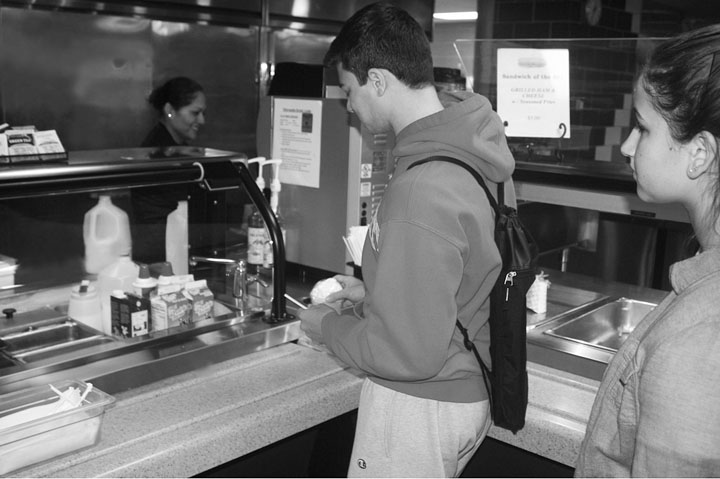
During a two-week summer kayak trip, junior Shannon Buttimer was unable to consume her daily five cups of coffee: two cups in the morning, two at lunch and one in the late afternoon. After she started getting headaches during the day, she found that drinking coffee just once in a while eliminated the headaches.
According to licensed professional counselor Raychelle Lohmann, increased teen caffeine consumption is producing adverse health effects.
Lohmann said caffeine overconsumption can produce health problems, including headaches, insomnia, irregular heartbeats, cardiac arrhythmia and anxiety.
“The American [Diabetes] Association says that the number of teenagers consuming caffeine has tripled since the 1970s, and I think that is probably going to continue to go up,” Lohmann said.
Lohmann called caffeine “an addicting drug.” She listed common signs of caffeine withdrawal as jitteriness, nervousness, dizziness, excessive sweating, restlessness, insomnia, arrhythmia, nausea and loss of appetite.
“If you can’t stop [drinking caffeine] without one of those withdrawal symptoms, then you’re too dependent,” Lohmann said.
Sophomore Callie Williams said she used to be addicted to her daily coffee.
“If I didn’t have [coffee] in the morning, I would feel slouchy, but I wouldn’t be going crazy,” said Williams. “I would feel drowsy.”
According to Lohmann, the daily amount of caffeine consumption recommended for adults is between 200 and 300 milligrams and 100 milligrams for adolescents.
However, she said consuming many caffeinated beverages or drinks with high caffeine content can easily exceed those limits.
“A soda can have 50 to 60 milligrams [of caffeine] per can and some energy drinks can go up to 80, 90 [or] 120 milligrams per can,” Lohmann said.
Buttimer said she failed in her attempts to stop consuming caffeine, which upset her stomach.
“I would try to not drink [coffee] for two days, and I’d get all these headaches and feel foggy and out of it,” Buttimer said.
Williams said she stopped consuming caffeine because it made her heart race and because she takes insulin. She said avoiding caffeine is challenging.
“If you go to the cafeteria and read the contents of the things we drink, nearly everything has caffeine,” Williams said.
Although overconsumption of caffeine can be harmful, “in moderation, caffeine does have positive effects,” said Lohmann. “Tea and coffee beans are high in antioxidants.”
In addition, the caffeine in tea and coffee has been shown to help people with dementia and Alzheimer’s improve memory and increase alertness, according to Lohmann.
Keeping alert while studying is a common motivator for teens to consume caffeine, Lohmann said.
“I used [caffeine] a lot at first to stay awake and for school work,” said Buttimer. “Also, it gave me an extra boost in the morning because I’d always be really sleepy and lethargic. It can also make me more aware of what I’m doing and makes me more focused and more productive.”
Lohmann said the profitability of selling coffee contributes to a proliferation of coffee retailers.
“[Coffee] is a multi-billion dollar industry,” said Lohmann. “You pay a few bucks for that cup of coffee, while it costs [corporations] just pocket change to make it. [Corporations] can even increase prices too because there’s a demand.”
However, Lohmann cites a stressful culture as the key factor driving the growth in teen caffeine consumption.
“Everything is a competition,” said Lohmann. “For [young people], it’s about getting into college and then getting a job.”
According to Lohmann, “the key thing is moderation” and to “be aware of what you’re putting into your body.”

